What Is Inconel Machining?
Inconel is a high temperature, high nickel alloy that exhibits superior oxidation and corrosion resistance as well as tolerance to extreme environments of pressure and heat without loss of material strength.
These characteristics make inconel superalloys an ideal choice for use in extreme environments subjected to pressure, heat, and/or corrosive elements, such as those found in the aerospace, marine, and chemical processing industries. When heated, inconel forms a thick, stable oxide layer protecting the surface. Inconel retains tensile strength over a wide temperature range, attractive for high-temperature applications.
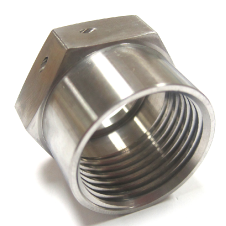
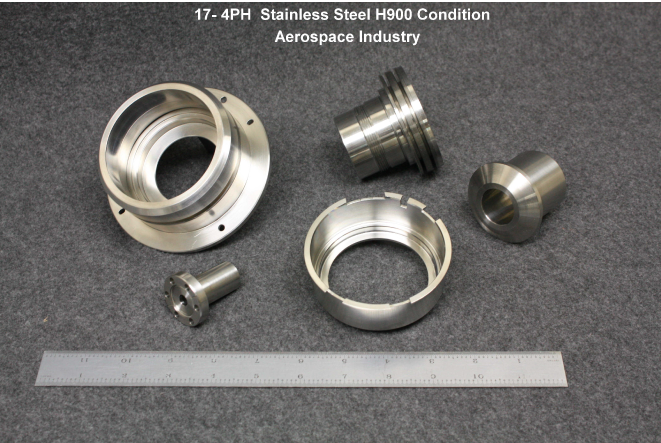
Precision Inconel Machining Challenges
While Inconel’s strength and resistance to high temperatures make it the ideal choice for use in extreme environments, it also poses major challenges for those machining it.
Factors that influence inconel’s machinability are:
- Poor conduction of heat, effectively concentrating the heat on the cutting edge and tool face, creating excessive wear
- Chemical reactivity, which causes galling, welding, and smearing, all also leading to compromising the cutting
- Precise speeds and feeds required to mitigate inconel’s “springy” quality that tends to distort key features, especially any thin cross-sections of the part
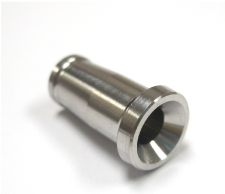
Solving Part Issues When Machining Inconel
These tooling challenges can also lead to challenges with parts. As an example, this can cause bulge deformities and finishing inconsistencies, create calibration and tolerance issues, affect quality, and ultimately slow down production. To avoid this, each part requires careful process planning. By making modifications and creating a proprietary process, Specialized Turning has created a solution to remove bulging and post-process finishing, creating a more consistent and high-quality part for the customer. Click here to read more about this solution.
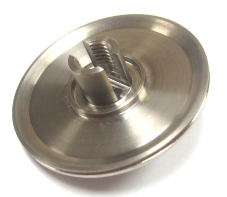
Inconel Machining Costs
The high amount of energy required to separate inconel is one of a few primary factors of the high price of machining this tough metal. Once on the tooling floor, machining is costly. When machining inconel, we must consider some tough restrictions on machining parameters that can affect:
- Metal removal rates
- Surface finish quality
- Dimensional accuracy
- Tool life (premature tool change vs. expense of regrind)
- Run time (as compared to machining other types of alloys)
- General maintenance of machines
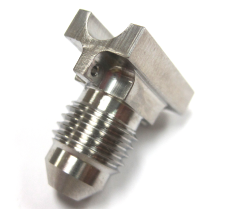
Inconel Machining Tooling
Understanding tool limitations is crucial to prevent failures when machining Inconel. Preventing work hardening, which occurs when the metal ahead of the cutting tool becomes plastically deformed, is the key to success. This requires advanced planning as well as a thorough understanding of the limitations of the various tooling being used.
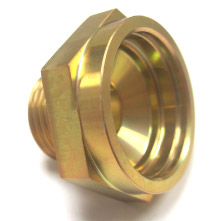
The average tool life is typically 30 minutes while generating a cutting process or chips. In general, an ongoing 30-minute cycle plan needs to be in place to remove and replace the tool as the part is worked. This must be done in consideration of the various operations required to produce the finished part. It is often considered impractical to stop and change a tool in the middle of an operation without negatively affecting the quality of the finished piece. In practice, however, there are times when this must be done, and the shop will need to engineer this strategy in advance of the machining process. In summary, each cutting tool should have a planned replacement cycle of use and then be re-sharpened or discarded.
Inconel Applications
Inconel also has a high tolerance for pressure. Combined with its extreme temperature tolerance—both high and low, making it suitable for rapidly fluctuating cryogenic and extreme heat situations—inconel is perfect for a variety of punishing operating environments. It can withstand oxidation from volatile and corrosive gasses, a necessary property for applications in the oil and gas extraction industries. Inconel is in high demand in many markets and for diverse applications, including:
- Nuclear power plant reactors
- Firearm sound suppressor baffles
- Rocket engine thrust chambers
- Heat treatment baskets
- Marine equipment/salty environments or processes
- Steam turbines
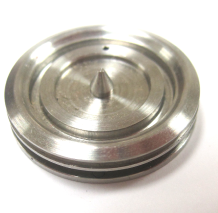
Types & Attributes of Inconel:
- Inconel 600 – used mostly in corrosive environments such as furnaces, heat treating equipment, steam generation
- Inconel 625 – high strength and toughness used in marine equipment bellow tubing and assemblies, heat exchangers
- Inconel 718 – weldability, oxidation resistance used in high-heat environments such as jet engines, hot extrusion tooling, chemical processing
See How We Work with Inconel
At Specialized Turning, we are experts in machining inconel alloys to produce the best possible quality and value. While each type of inconel has its own intricacies, we match state-of-the-art tooling geometries and coatings to ensure the most economical stock removal rates at the highest speeds possible for economical machining. With our extensive inventory of tooling, upfront costs, and order processing, expenses are minimized.
Let’s talk about your inconel needs. We’d love to get the conversation started.